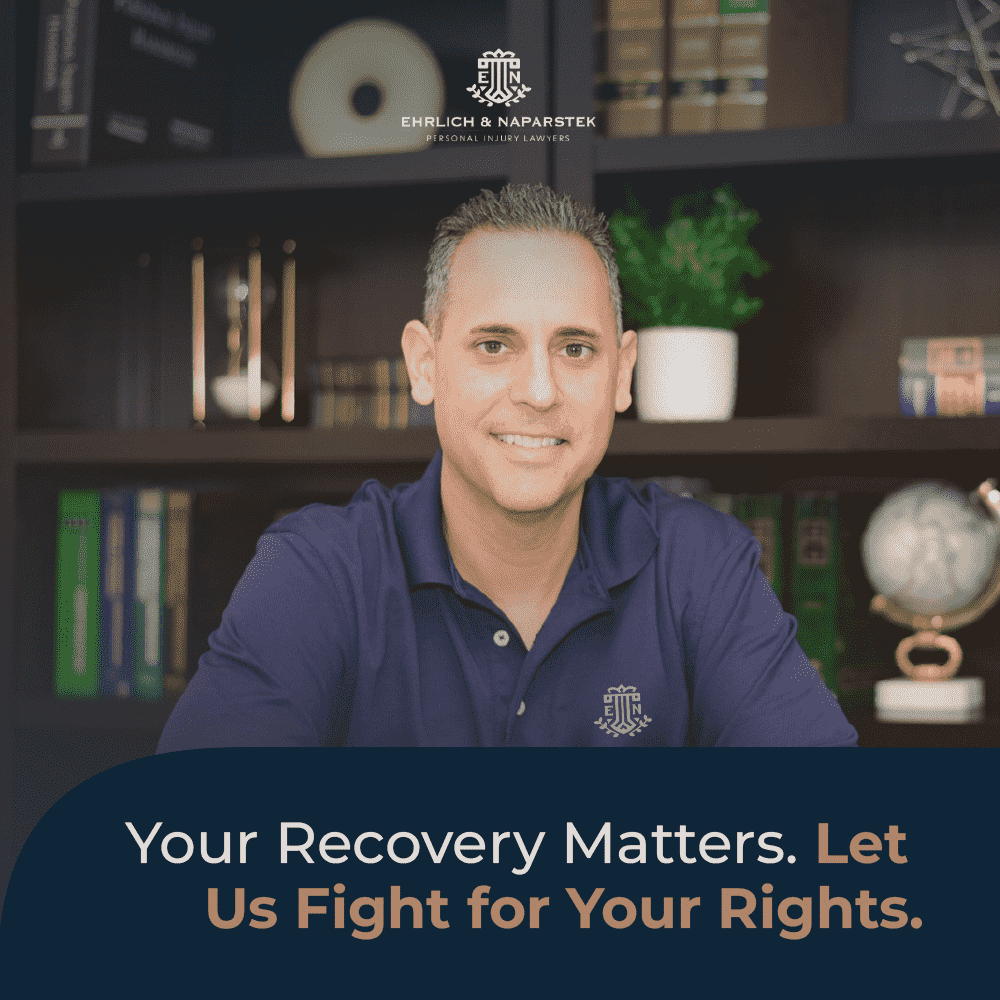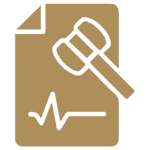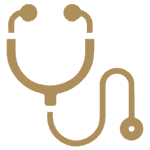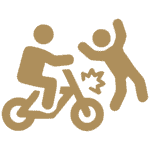Mon to Sun - 24/7 365
Top 5 Most Common Types of Car Accidents and Their Causes
Table of Contents
ToggleCar accidents are a significant concern on roads worldwide, leading to countless injuries and fatalities every year. Understanding the types of accidents that commonly occur and their causes can equip drivers with the knowledge to avoid them. Here, we provide an expanded analysis of the five most frequent types of car accidents, exploring their causes in depth and offering detailed prevention tips.
1. Rear-End Collisions
Causes: Rear-end collisions are often caused by driver inattention and tailgating. When drivers fail to pay attention—due to smartphone use, eating, or other distractions—they might not notice when traffic slows or stops ahead of them. Similarly, following too closely gives a driver less time to react if the vehicle in front suddenly brakes.
Prevention: To avoid rear-end collisions, drivers should adhere to the “three-second rule,” keeping at least a three-second cushion between their vehicle and the one in front. This distance should be increased in poor weather conditions or heavy traffic. It’s also crucial to stay focused on the road and avoid any activities that could divert attention away from driving.
2. T-Bone Accidents (Side-Impact Collisions)
Causes: These accidents typically occur at intersections and are commonly the result of failing to yield the right of way, disregard for traffic signals, or excessive speed. They can cause significant damage and injuries, particularly when a vehicle’s side, which has
less structural protection compared to the front or rear, is impacted.
Prevention: Always obey traffic lights and signs. Exercise caution at intersections, even if you have the right of way, by looking both ways for oncoming traffic. Reduce your speed as you approach an intersection, and never assume other drivers will stop as required. Install and utilize blind-spot monitoring technologies if available, as they can alert you to vehicles that might cross your path as you navigate through intersections.

3. Single-Vehicle Crashes
Causes: Single-vehicle accidents can be triggered by several factors, including driver error, such as distraction, fatigue, or impaired driving. External conditions like slippery roads, poor visibility, or unexpected obstacles (like fallen tree branches or animals crossing the road) also contribute significantly.
Prevention: Maintain your vehicle regularly to ensure it is safe to handle adverse road conditions. Adjust your speed to match the road conditions, and never drive when you are tired or under the influence of alcohol or drugs. Be particularly cautious when driving at night or in bad weather, and always keep your eyes on the road ahead to spot and react to hazards early.
4. Sideswipe Collisions
Causes: These occur when drivers change lanes without proper clearance, often because they fail to check their blind spots or misjudge the distance of an approaching vehicle. Distractions, impaired driving, and high speeds exacerbate the risk of sideswipe collisions.
Prevention: Always use turn signals before changing lanes to alert other drivers of your intentions. Take the time to check mirrors and blind spots thoroughly before making any lateral moves on the road. Keep a steady pace in your lane and avoid abrupt lane changes, especially in heavy traffic. Technologies like lane departure warnings and blind-spot detection can provide critical assistance in preventing these types of accidents.
5. Head-On Collisions
Causes: Head-on collisions are often the result of wrong-way driving, which may occur due to driver confusion, intoxication, or distraction. These accidents are particularly dangerous due to the high-speed impact and the direct force exerted on drivers and passengers.
Prevention: Always stay alert and focused on the road, avoiding any form of distraction. Follow road signs and lane markings carefully to ensure you are driving in the correct direction. Never drive under the influence of alcohol, drugs, or when severely fatigued. If you see a driver approaching in your lane, reduce your speed, pull over safely, and alert the authorities immediately.
Conclusion
Being aware of these common types of car accidents and their causes can significantly enhance your driving practices and safety on the road. Implement these preventive measures to protect yourself and others while driving.
If you are involved in a car accident, seeking professional legal assistance can make a significant difference in managing the aftermath. At Ehrlich & Naparstek Personal Injury Lawyers, we are dedicated to supporting you through such challenging times.
Contact us 24/7 at (772) 842-8822 (Stuart) or (561) 687-1717 (West Palm Beach) to schedule an appointment. Visit our office at 1330 SE Federal Hwy Stuart, FL 34994.
For further information on vehicle safety and preventive measures, please visit the National Highway Traffic Safety Administration’s website.
Safety is a shared responsibility—stay informed and vigilant to contribute to safer roads for everyone.

clients have
confidence in us
I wouldn't consider anyone else in South Florida for my legal needs! This law firm is exceptionally knowledgeable, incredibly friendly, and remarkably courteous. Their client-centric approach is truly commendable. I wholeheartedly recommend them to anyone in search of a reliable law firm.
Best Lawyer, Simply Incredible, Unbelievably Efficient, and Utterly Reliable - This law firm exceeds all expectations! I assure you, disappointment is not in their vocabulary. Experience it for yourself! They are unequivocally the finest attorneys in the state. Don't hesitate; schedule your consultation today!
The Ehrlich & Naparstek Attorney Firm truly stands out as exceptional, thanks to their outstanding team of professionals. From the moment I engaged with them, I was met with nothing but excellence, professionalism, and genuine care. Their unwavering dedication to their clients' well-being is truly commendable. This team not only works diligently but also excels in their roles, leaving no room for doubt about their competence. I couldn't have chosen a better group to represent me in my worker's compensation claim. The Ehrlich & Naparstek team, you all are absolutely incredible and rock stars in your field! Thank you for your remarkable service.
Accident Types
important PERSONAL INJURY FAQ
vision makes us who we are
What is the statute of limitations for personal injury claims in Florida?
In Florida, the statute of limitations for most personal injury claims is four years from the date of the injury. This means that if you've been injured, you have four years to initiate legal proceedings. If you fail to file your lawsuit within this time frame, you may lose your right to seek compensation.
How is fault determined in Florida auto accidents?
Florida operates under a no-fault insurance system. This means that after most traffic accidents, your own insurance policy will compensate you for medical expenses and lost income, irrespective of who was at fault. However, in severe injury cases, you might be able to step outside this no-fault system and file a lawsuit against the at-fault driver.
What is Florida's comparative negligence rule?
Florida follows a pure comparative negligence rule. If you're found to be partially at fault for your injury, your compensation may be reduced by a percentage equal to your share of the blame. For instance, if you're found to be 20% at fault, you can still recover 80% of your total damages.
What damages can I recover in a personal injury lawsuit in Florida?
In Florida, you can seek compensation for both economic and non-economic damages. Economic damages include tangible costs like medical bills and lost wages, while non-economic damages cover intangibles like pain and suffering, emotional distress, and loss of enjoyment of life.
How long does it typically take to settle a personal injury case in Florida?
The duration varies based on the complexity of the case, the parties involved, and the evidence. While some cases might settle quickly, others, especially those that go to trial, can take months or even years to resolve.
How much will it cost me to hire a personal injury attorney?
We operate on a contingency fee basis. This means that we only get paid if you win your case or secure a settlement. Typically, the fee is a percentage of the compensation you receive.
What should I do immediately after an accident in Florida?
First, prioritize your safety and seek medical attention. Then, if possible, document the scene, take photographs, gather witness information, and report the incident to the police or relevant authorities. It's also advisable to contact a personal injury attorney as soon as possible.
What if the person who hit me doesn't have insurance?
If you're hit by an uninsured or underinsured driver in Florida, you can turn to your own insurance policy's uninsured/underinsured motorist coverage. This coverage can help compensate for your injuries and damages.
How do I prove pain and suffering in a personal injury case?
Pain and suffering are subjective and can be challenging to quantify. Evidence such as medical records, therapy sessions, personal journals, and testimonies from friends and family can help establish the extent of your pain and suffering.
Make an inquiry?
vision makes us who we are















